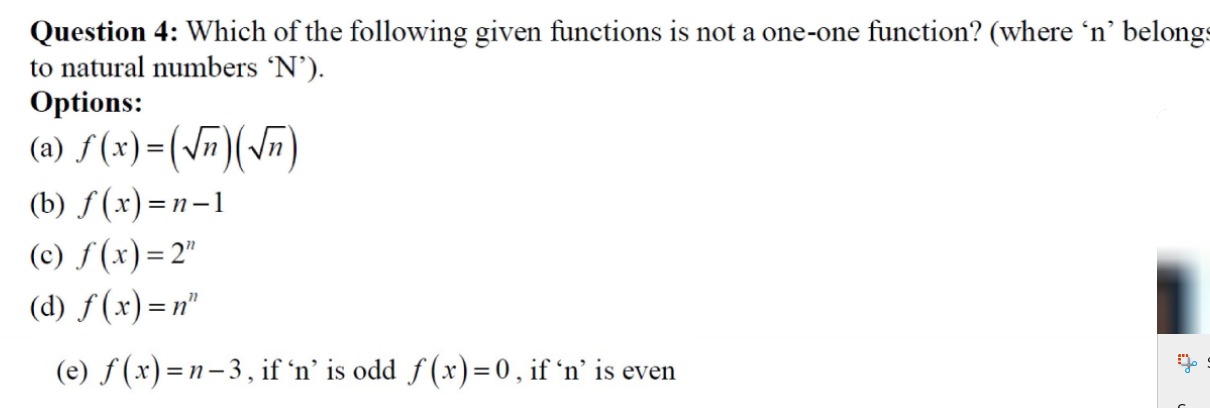Question
Question: Which of the following given functions is not a one-one function? (where 'n' belongs to natural numb...
Which of the following given functions is not a one-one function? (where 'n' belongs to natural numbers 'N').

f(x)=(n)(n)
f(x)=n−1
f(x)=2n
f(x)=nn
f(x)=n−3, if 'n' is odd f(x)=0, if 'n' is even
Option (e)
Solution
For options (a)–(d), distinct n yield distinct f(n), but in option (e) even numbers map to 0, making it non-injective.
Option (a): f(n)=(n)(n)=n
This function is one-one since if n1=n2 then f(n1)=f(n2).
Option (b): f(n)=n−1
A linear function with slope 1 is one-one.
Option (c): f(n)=2n
The exponential function 2n is strictly increasing and hence one-one.
Option (d): f(n)=nn
For natural numbers, this function is strictly increasing, therefore one-one.
Option (e):
f(n)={n−30if n is oddif n is evenHere, every even n gives f(n)=0. Thus, different even values (like n=2,4,6,…) have the same output. This violates the one-one property.
